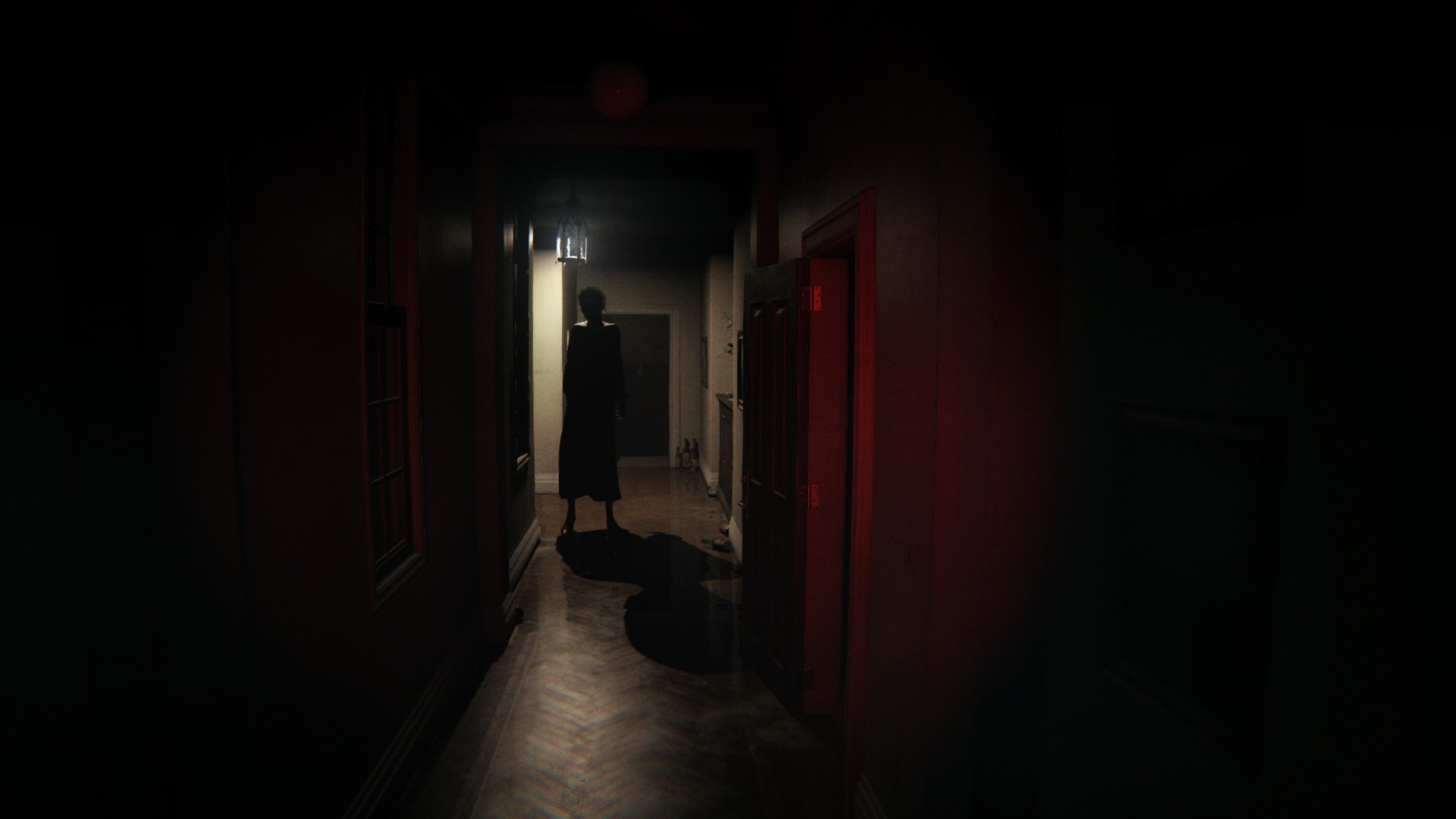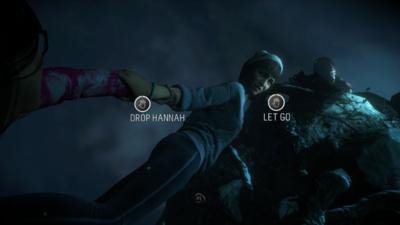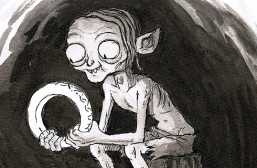The Future of Writing: Video Games
We are now living in the Technological Revolution, a time period in which technology is growing at an exponential rate, and as a result our culture and society is evolving at the same rate. This begs many questions as to what will become of society and what will the daily life we know today look like in the future. For example, what will happen to the art of writing and storytelling? The answer: video games. As gaming is becoming more popular and more advanced, developers have been incorporating more flourished narratives for players to experience. But even without society becoming more and more electronically based, video games still hold unique qualities that take story telling to a whole new level.
Psychology in Gaming
A major factor that sets gaming apart from other forms of narrative is the act of immersing player into the content and breaking the fourth wall. The “fourth wall” is a term meaning that a story directs its attention to its audience, such as when characters look at the camera in a movie like they are looking at the viewers or when a narrator addresses whoever is reading or watching their story unfold. Games don’t just address the audience, they make the audience play as a character and have that character play through the story, thus making the player go through the story themselves. This shifts the experience from watching or reading someone else navigate a story to navigating the story themselves, making the mentality be “I” am doing something rather than “they” are doing something. This is a heavy factor in emotionally tense games and choice-based games.
We all know the horror movie cliché of someone going into the basement because they heard a noise and everyone in the audience simultaneously thinks “I wouldn’t go down there, Becky here is just being dumb”. But a video game has the ability to force its players to do just that. Go into the basement if you want the game to progress. And there you have the difference of watching someone else do something scary and thinking “great, now I have to go down there”. This intensifies the experience over a movie where you feel more distant from whatever lurks in the shadows. To add to the experience, a gamer knows they have to act in response to whatever happens next. They have to be on their toes and do what they can to survive. This immerses the player even more into the game and builds even more suspense as the player feels that they will be attacked and their survival is on the line.

Choice-based games are games in which the player has to make decisions, ranging from small, inconsequential choices to shaping the course of the game’s narrative based on the actions you take. There are many games with multiple stories or endings that the game get directed toward based on how you play the game. Until Dawn, a survival-horror and choice-based title, explores this with the theme of the butterfly effect, which is when one decision changes what will happen down the road through cause-and-effect, changing the outcome of the narrative. Who lives and who dies is up to you, the player, and sometimes the game gives you difficult decisions to make. The image below is one of the first choices the game gives you. You are hanging off a cliff by one hand and clutching your twin sister with the other, do you willingly kill her to save yourself or fall to your doom? The key here is that you have to be the one to choose, to click the button and determine her fate. Spoiler alert: you both die anyways, so if you dropped your sister you might have some guilt. And to make things even more tense, the game makes you choose in a matter of seconds, forcing the player to push the narrative further.

Another style of choice-based games are those in which you can customize the details of the game, individualizing the experience. One of the most classic games of this category is the Sims, a game that is entirely based on creating a life for your avatar and deciding how their life progresses. Who will they marry? What will their house look like? Will you give them a pool and then take away the ladder so they have no way out? Other games, such a Skyrim, a medieval fantasy known for its open world, are so vast in detail of the world it’s set in that beyond the main story line of stopping an evil dragon from taking over the world you can customize the rest of the game to your desire. You can choose what species your character is, what type of powers you’ll develop, and even which side of the civil war to support. In the case of Skyrim the overarching story doesn’t get altered much based on your actions but you can change all the fine details as you wish.
Examples of Different Writing Styles in Games
There are many ways in which video games have implemented well written stories and enjoyable content for its viewers. The use of breath-taking visuals and cinematography has already started to be implemented into titles and enhanced the gaming experience. With cut-scenes (when the game-play stops for a scene to show) developers can take the opportunity to add cinematic value by choosing what is or is not in the shot or what the characters do in relation to the story. As programming evolves, developers are finding new ways to add different visuals to their titles. Any art style that can be designed through a computer has the potential to be played through in a game.
Many titles take advantage of the interactive element of gaming to enhance the experience they provide. Open world games have hidden content that can be found through exploring the game. For example, in Skyrim there are dozens of books scattered throughout the land, in libraries and on people’s tables, in which you can pick up and read. You can also find notes, letters, or talk to other characters who have their own preset story you can listen to. There is so much hidden content and side quests within Skyrim that the gaming community doesn’t see just finishing the main story line as completing the game. It is estimated that it would take the average player over 300 hours to beat every mission and max out a character’s rank. That’s a lot of writing to go into one game.
Another series, Child of Light, has a unique take of narrative telling. The whole story, from the narration to the dialog spoken by characters, is written in iambic pentameter. In other words, this game is one long poem, designed with rhyme and meter. It also uses watercolor styled art to add visual appeal and create beautiful landscapes to explore. These elements serve as a great example of how poetry and different styles of art can be implemented into the gaming genre.
There are numerous other ways developers have found to tell their stories. In Her Story the game is comprised solely of video files and the player has to find and watch the videos to complete the story in a jigsaw puzzle fashion. The Half-Life and Portal series are known for having no cut-scenes in their play-through so that it seems like the characters in the game are talking directly to the player rather than just the person they are playing as. Other elements that have enhanced a game’s narrative are visual art (as seen in Child of Light, the Final Fantasy series, and Okami) and amazing soundtracks (as seen in Kingdom Hearts, Life is Strange, and Ori and the Blind Forest).
Virtual Reality: The Game Changer
But one of the biggest factors to keep in mind when thinking about the future of writing and its relation to video games is the aforementioned development of technology. Virtual reality equipment is already on the market, particularly for gaming. As this kind of gear becomes more advanced and more popular, gaming will become more focused on bringing the player into the game as it literally can. This will both enhance the experience of playing as well as change how developers will think about how their audience interacts with their content. It brings a whole new level of an audience’s point of view into factoring how a game will affect those who pick up the controller. It will also open up more possibilities for the entertainment industry as a whole and therefore more media will progress towards gameplay so it can add that virtual reality effect. An example of how this technology is theorized to effect society is seen in Ernest Cline’s book Ready Player One. In this dystopian novel everyone in society lives the majority of their lives in virtual reality. It’s where they go to school, do business, and ignore whatever reality they don’t have to face, because in the virtual world anything can be simulated and anyone can live through the actions of their avatar without physical dangers or limitations.

Gaming is no longer just a venue for Adrenalin-filled game play and addicting puzzles, it’s become cinematic, thought-provoking, and emotionally charged. Many gamers will talk about how they cried while playing The Last of Us or were scared out of their minds during Silent Hills P.T. All the titles mentioned are critically acclaimed and were designed by brilliant writers that knew how to use the video game format to convey an incredible experience. In 2008, the Writer’s Guild of America added video games as an officially recognized subject in which awards for writing can be achieved, marking how recognized writing in games already is. As technology grows and people become more engrossed in interactive entertainment the video game industry will dominate as a literary platform.
Works Cited
Kelly, Andy. “Her Story Review.” Pcgamer, PC Gamer THE GLOBAL AUTHORITY ON PC GAMES, 22 June 2015, www.pcgamer.com/her-story-review/.
Tiwari, Aditya. “Oculus Connect Big Announcements: Touch Controller and Wireless VR Headset.” Fossbytes, 7 Oct. 2016, fossbytes.com/oculus-connect-big-announcements-touch-controller-and-wireless-vr-headset/.
Faded-Myth. “P.T.” Silent Hill Wiki, Silent Hill Wiki , silenthill.wikia.com/wiki/P.T.
“Updates.” Global Shapers, Global Shapers, Aug. 2017, www.globalshapers.org/news/day-virtual-reality.
“How Long’d It Take to 100% Complete Skyrim, and How Many Missions Are on There?” IGN Boards, IGN, 9 Nov. 2014, www.ign.com/boards/threads/how-longd-it-take-to-100-complete-skyrim-and-how-many-missions-are-on-there.454287220/.
Mitchell, Gregg. “2017 WGA Videogame Writing Award Call for Submissions.” Writers Guild of America West, Writers Guild of America, 6 Sept. 2016, www.wga.org/news-events/news/press/2016/2017-wga-videogame-award-call-for-submissions.
Kojima, Hideo. Silent Hills P.T. Kojima Productions, Konami. 12 August 2014.
Bowen, Nik. Until Dawn. Supermassive Games. 2015.
Skyrim. Bethesda Game Studios. 11 November 2011.
Pirate, Cœur. Child of Light. Ubisoft Montreal.
Cline, Ernest. Ready Player One. Random House , 2011.
What do you think? Leave a comment.











Some parts of games are written, others are designed or drawn, and storytelling can be the result of any or all of a game’s elements. Minecraft has no written story at all yet inspires the most vivid storytelling experiences for a generation of gamers. Other games may have reams of storytelling text involved, but it may be the actual choice (or illusion of choice) that presents the interactivity that is at the heart of the game.
I’m currently really enjoying the writing and atmosphere of the game Sunless Sea. It’s mixture of horror, melancholy and humour in a Victorian setting, very atmospheric.
Seconded. It’s cripplingly slow paced though, it isn’t for everyone, but there’s something about that Lovecraftian Steampunk vibe that’s irresistible.
Great soundtrack too.
That’s actually an extention of a very good browser game called Fallen London. Since that game is entirely text the focus is almost entirely on story and atmosphere – if you like it in Sunless Sea, you’ll definitely like it in Fallen London.
Fantastic article. I think that a lot of people, particularly outside of the video games world, misunderstand the nature of games as art. Critics point to games such as The Last of Us as good examples of video games being art because they have more traditional narratives and storytelling techniques, and are closer to films than many other games.
This makes them easier to appreciate as art – art as we know it anyway. But I think this is misunderstanding the medium. Those are, of course, great games, but video games are such a different, new and unique artistic medium, and should be viewed differently. Gameplay is just as important, if not more important, than storytelling in games, and it gets sort of ignored as having artistic merit because it’s technical, and is more technology orientated.
But you can compare gameplay mechanics, level deigns, scoring systems etc to technical and creative aspects of films – the mise-en-scene, the lighting, the camerawork, the editing – if a film has poor editing, or bad lighting, it is seen as a bit of an artistic failure, and if those things are handled very well, they are an artistic success. The same principle can be applied to games, it’s just a bit harder to grasp, especially for people who maybe don’t know so much about them. It’s an amazingly exciting genre to be involved in at the moment though, and I really feel that games are the artistic medium of the future.
I agree and to amplify I vividly remember being actually scared when crouching behind some derelict furniture as a clicker searched for me in The Last of Us. The terror I felt when I emerged and tried to kill it with my improvised shiv was only exceeded by my elation when it worked.
For some games the best point of comparison might be music rather than literature. A Mario platformer has no real plot to speak of, but the feel of the gameplay can evoke emotions ‘directly’ in the way that music can – you feel the joy of moving as Mario because it’s joyous, not because the game conveys a narrative that something good has happened to a character.
As a storyboard artist in animation I’ve always wanted to delve further into games using visual narrative as part of gameplay, as it’s very few that I feel get right, or smooth enough so that it blends in with the actual game. Journey’s one of those. However it still stops to tell us a story and takes control away in places, even if the narrative is relatively abstract. I’m trying to think of a game that really nails it… even Ethan Carter had me more wandering than actually taking part in the narrative, and you’re actually a passive observer of a past happening than really being involved. Would be great if someone could bring up an example of the two blending in together perfectly?
Storytelling in games is more important than ever these days and I think we’re going to be seeing a rise of more writing-heavy titles within the next few years.
For amazing games writing, I’d recommend “The Void” by Ice Pick Lodge. Featuring amazing surrealist art, nightmarish visions and creating living creatures from colour in a grey monochrome landscape.
Other strong contenders would be Shadow of the Colossus/Ico, Braid with its beautifully painted backdrops…there’s a lot out there if you know where to look.
Shadow of the Colossus might not quite measure in the highest ranks of literary art, but I think it does measure in the highest ranks of visual art. Indeed, I’d suggest that it’s more important visual art than 99% of what is considered ‘fine art’ by museum curators and art critics.
Thank you, what a good article.
People feel this need to separate narrative from gameplay, when really what you should be doing to tell a good story in a video game is building the narrative into the gameplay itself. Cutscenes don’t always cut it. This is something Brothers: A Tale of Two Sons does very well. Portal does it really well too, as it never really takes control away from the player to spew dialogue at you through a long winded cutscene.
It could be argued that videogames are just an extension of movies when it comes to storytelling. Both use the television as their chosen medium, and whilst in many videogames you can choose how the story unfolds, that is mostly just relegated to which non-interactive cutscene you see in a choose-your-own-adventure. Even games which pioneered modern storytelling in videogames (Shenmue and Mass Effect, for instance) are like this.
Videogames can do better – they can basically give us great scenes that are like the greatest movies, but currently rarely do. However, we also have to wonder how they could take advantage of player interaction without breaking the game completely (e.g. the “hero” kills a vital character – how would the game react?).
Modern game writers seem like their film equivalents in the 1920s; they are still wrestling with this vast new medium.
I’ve just finished playing Papa y Yo (old freebie game on PS plus) and I’d say it has had a much stronger emotional effect on me than any cinema, TV or book I’ve experienced recently. Yes, it initially appears as a straightforward platform/puzzle game but the relationship that develops with the “monster” is really compelling.
I (have) read a lot of books, now mostly on Kindle, but somehow have remain unable to reach the world of video games despite of being fascinated by them.
I think that the reach of the medium has a role too. Whereas books are ubiquitous, video games require a gadget (smartphones/ devoted consoles), which most of the times is not available to every kid (read financial factor).
Games are so expensive to produce it is only in the rising indie game market you will find new ideas in the future.
The literary world can complain that most video games don’t feature good storytelling, but since when do all books do the same?
Generally games are getting dumber and aimed at a younger audience – most games are also too easy these days. The traditional RPG and appearance of text on screen is minimal these days and most RPG’s are hackn’slash or FPS games with minimal RPG elements.
The issue is interactivity. Video games are interactive on the shallowest level, like a Choose Your Own Adventure, or at best a Sudoku puzzle. Books have deep interactivity, they work on the deepest levels of the readers imagination. There is really very little to compare between the two.
I used to think that games might produce their own 1984 etc. But they won’t. It isn’t just an outcome of the relatively unimaginative people currently involved in making them. Games are fundamentally a very limited form. They have the appearance of narrative, so we hope they will achieve what narrative can. But they are’t narrative. Even the best of them boil down to spreadsheets expressed through a graphical interface. Databases just aren’t a fertile ground for great art. however we dress them up.
I’m a full-time screenwriter who’d love to get into writing for games – but all the work I’ve been offered is of the unsatisfying ‘find fifty different ways to say “turn left” for driving games, and all that sort of thing. And the pay was pretty poor, too, so I didn’t bother. If I anted to cross the t’s on someone else’s work, I’d go to Eastenders, where the pay is at least pretty good.
Thing is, to have influence on a story, you have to get at a very early level, and most developers simply don’t want to hand over control, seeing themselves as the driving creative forces behind their games (which in some cases, they are).
I’ve just started a PhD in the emerging dialogue between poetry and games, and while I obviously have a lot of investigating ahead of me, it seems to me younger writers and developers are increasingly clued up about what they can learn from each other. It’s just a shame that the dominant voices in the media tend to be old guard types.
It’s a lot easier to write a good work of fiction than to write a plot for a video game, as there are so many constraints on the latter, including the cost, working the game mechanics into the plot, dealing with a team, voice actors who may be (likely to be?) crap, great difficulty in exploring the thoughts of the protagonist, taboos on exploring sex and politics and to a lesser extent religion within games (Possibly for the better – attempts at breaking these taboos often fail hideously). In contrast, the only thing stopping you from writing a novel is yourself.
If games trying for a serious story means more amazingly awkward “romances” ala Bioware’s stable of games, then no thanks.
The “look” and “narrative” of gaming has parallels with other typical forms of art, such as paintings and music and film and so on, but what of how we’re meant to play it? What about the simplicity of Mario, yet the complexity that lies beyond its scoring system, for instance? The way that Space Invader increases the tension on the player by increasing the speed? The vast, interconnected world of Super Metroid? Sonic 2’s balance of speed and platforming?
Video games becoming a primary means of output for writers is a scary prospect for me. Putting your heart into a project just to be discredited by fans for something beyond your area (graphics, bugs, etc) would be my ultimate fear should this become the future. There’s so much to video games that any one aspect of the game could weigh the other areas down. Frightening…
From a very experienced writer who works in gaming, I understand the industry is looking to cut costs left, right and centre at the moment and is looking for less experienced people instead.
Part of the problem is that games, like comics, are not taken seriously as an art form. But that is changing… SLOWLY.
Too much stress? Too many business meetings? A too busy family life? You feel somehow exhausted? It is time for a massage release!
I’m pretty sure that future of writing is hidden in the art of a writng. Now people believe that writing process itself is not helpful at all. While I’m the writing can help to overcome depression and keep thoughts clear
Thanks for sharing this, not an area that I know much about so it was a really interesting read.
Interactivity possibly one of the more interesting things when it comes to writing. It has added an element to storytelling that was just not possible in the past.
The insight of this article is extraordinary. It seems apparent that video games will revolutionize the way narratives are constructed.
As a writer, this is a new writing endeavor that I’ve recently been considering. Your piece helped me to consider this avenue even deeper by mentioning the introduction of VR. I’d never considered how influential a strong narrative could be in innovating change for VR beyond simple point and shoot games. Thanks so much for sharing!
I’m very interested to see how the writing of video games changes as we perfect VR gaming l, story may be pushed aside for visual effects and realism.
I’m very interested to see how the writing of video games changes as we perfect VR gaming, story may be pushed aside for visual effects and realism.
This was absolutely a good read, thank you. It’s important to acknowledge that games have an incredible potential due to the interactive nature of the medium, and when the writing is in harmony with gameplay mechanics and more…you get masterpieces that tend to sell much better.
Technically, also one of the best reads I’ve seen on here. Almost no syntax or grammatical errors that took me out of reading what you had to say.
Well done.
Thank you for this article. There is much echoed about the movement between creative writing and videogaming. However some of the best moments I can think of with gaming are those that happened without any words at all. These are much harder to bridge with standard poetic forms.
Video Game narratives are so complex because they are so multi-faceted. Unlike a book where the story is mostly conveyed through text, focusing on characters and events, video games often involve several elements of conveying the narrative – through the characters, the environment, text and even the game play itself (game mechanics).
A good example of the game mechanics helping to convey the narrative is the collecting mechanic in Ether One (a game about dementia). The player can collect random items such as shoes and coffee cups, and doesn’t know what will be useful to them until they need these items.
Great article!
Video Games are definitely part of the multi-modal genre where text is combined with visuals and music to create a whole experience.
Great research on all those games and their different types of storytelling. As a writer, I’ve grown an interest in somehow writing for video games but I’m not sure who I would contact or where to go in order to get that kind of experience. I think for now, the app Episode would be really great practice for creating your own choice-based game. You can create 2D characters from a variety of animation choices and once you have your storyline and dialogue together, you actually get to “direct” how your characters move while talking & pick out backgrounds and everything. I think these style of games like choose-your-own-adventure are becoming even more popular.
To write a good piece for a game author should be a gamer first. I think the thing we see is that as people are using video games more, they tend to watch passive TV a bit less. And so using the PC for the Internet, playing video games, is starting to cut into the rather unbelievable amount of time people spend watching TV. So write more for games and play more!
Thanks for sharing.
I’ve found that narrative storytelling in games unlocks a whole new perspective that simply cannot be portrayed in film. The best games are ones where your choices have consequences. Especially when you make a mistake and have to live with the consequences throughout the story, not because it was a locked path, but because you made a mistake. My personal playthrough of Life is Strange really cut deep, because I knew it was my choices that affected the characters around me, and that if I had played the game differently, I could’ve prevented certain events from unfolding. It really made me feel personally responsible for everything that was happening, and I think that hits much closer to home than watching a linear storyline.